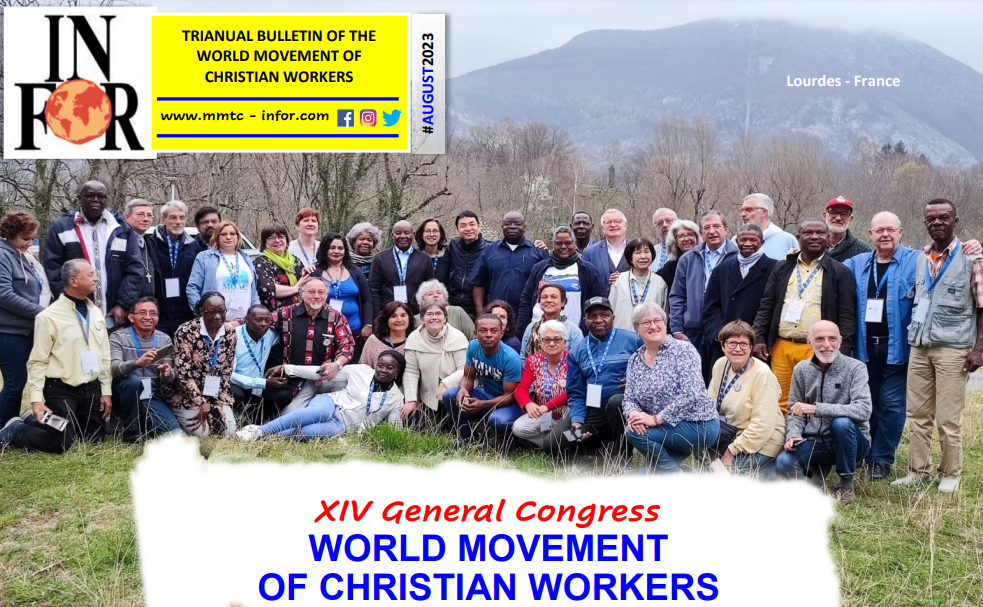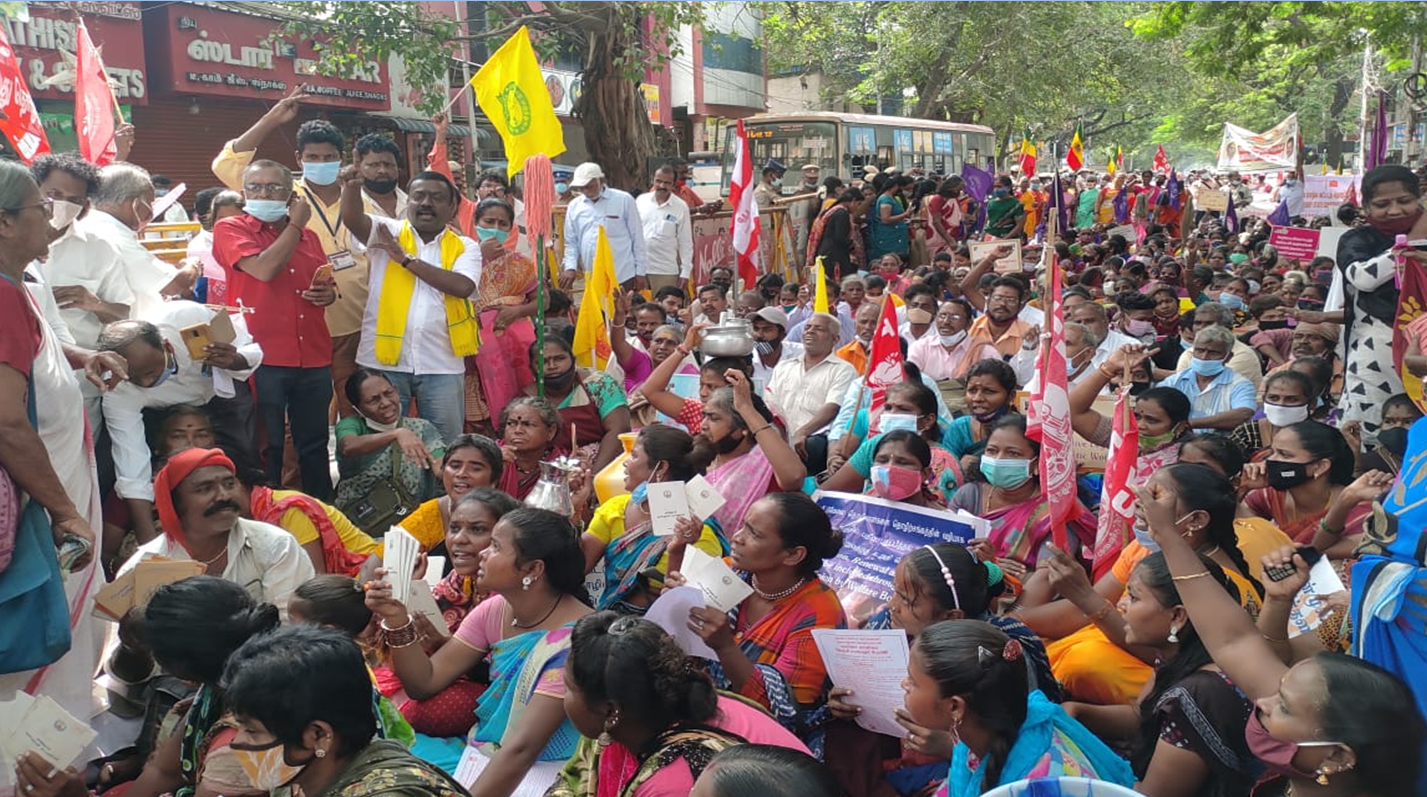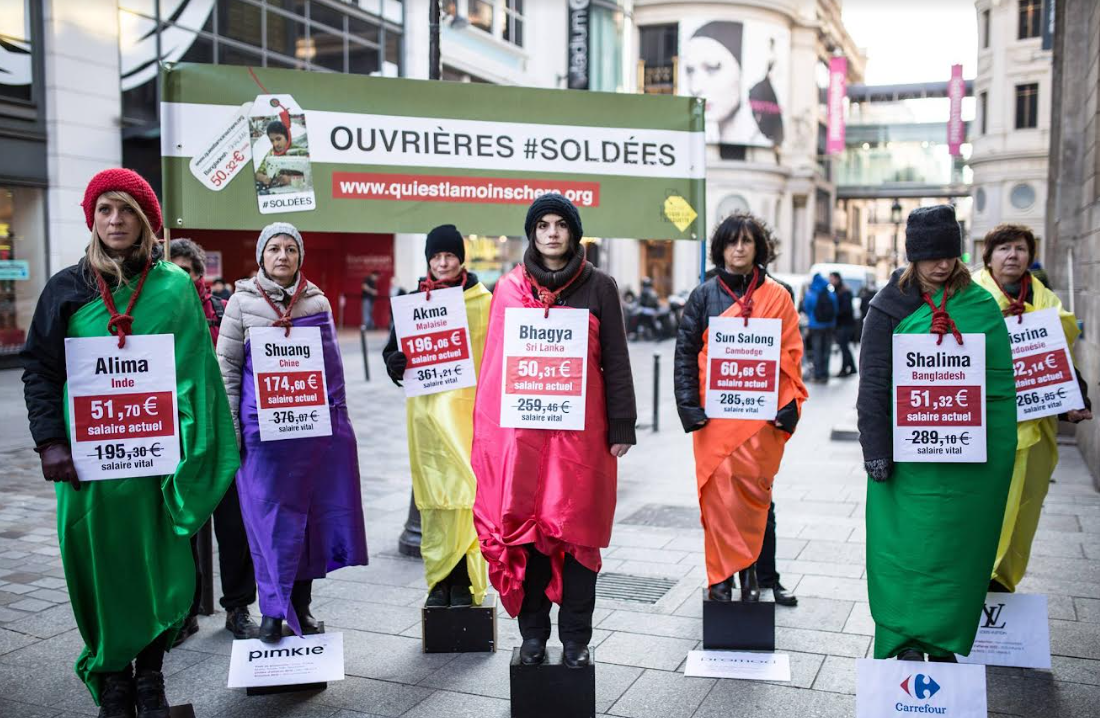INFOR March 2025: "Informal Work in Caring for Children and the Elderly"

Dear reader friend, You have in your hands this issue of INFOR, which focuses on the care sector. By this we mean all the professions involved in education and healthcare, as well as care for people of all ages, from children to the elderly, often provided at home due to a lack of appropriate facilities. Worldwide, women perform more than three-quarters of unpaid care work, spending an average of 4 hours and 25 minutes per day, compared with 1 hour and 23 minutes for men.
The ILO estimates that 606 million women of working age are outside the labor market́ due to their care and «social reproduction» responsibilities. As the International Labor Organization reminds us in its report «Decent Work and the Care Economy» (112th Session, 2024): «Societies and economies depend on paid́ and unpaid́ care work to function and pursue their human, social and economic development. The provision of care depends on care workers».
Within our movements, we see the same overrepresentation of women in these professions. Through their presence and action, they play a significant role in reducing the isolation of people and in combating individualism.
The ACO de France, in a dossier dedicated to care, reminds us that «these professions correspond to real skills. Let us make sure they are recognized. It is also a question of dignity». The articles in this issue reflect the necessary struggle for rights, the difficulty of having a decent income in retirement without recognition of this unrecognized work. March 8, the International Day of Struggle for Women’s Rights, can be an excellent moment to pause and reflect together, men and women, on this issue, without forgetting that it is a daily commitment, 365 days a year. We are counting on you to help spread the word about our magazine within our various movements.
We look forward to hearing your reactions and reading about the exchanges and actions it has helped to set in motion. It is thanks to you that our daily struggle for «social justice in an economy for life» is written with gender equality in mind.
Christine Isturiz, WMCW Co-president
INFOR October 2024: "Our Fight against an Inhuman Policy"
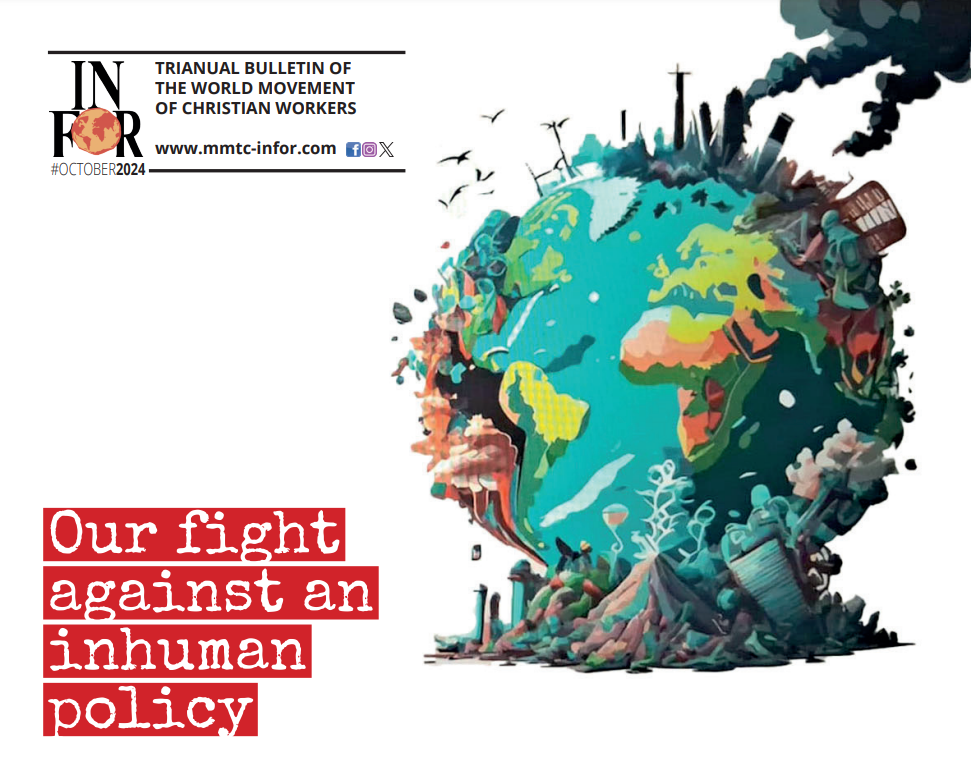
At a time when, in Europe, America and Asia, the rise and attempts by the far right to come to power are being decried, in East, Central and West Africa, to name but a few, we are experiencing totalitarian, corrupt and repressive regimes.
Unfortunately, the rise of extremes comes at the expense of the poorest. We appropriate power, wealth, economic power. We plunder natural resources for our own needs or desires to the detriment of the local people.
The political landscape is no longer shaped by the traditional poles of «left vs. right», «socialism vs. capitalism», or «communism vs. fascism». It has instead been replaced by a representation of the extreme center dynamic: «center vs. extremes». This amounts to erasing what substantially differentiates the left from the right in favor of a neutral perspective of politics where any social problem finds its technical solution.
The real failure is that of capitalist democracy or the «market economy» that promised prosperity for all at the end of the last millennium. Neoliberalism, an ultra-sophisticated version of the capitalist mode of accumulation and whose triumphant impetus has been called «globalization», has brought us to the brink of the disaster. Whether we take it from the perspective of inequality, precariousness, poverty, or the environment, we come to the conclusion of a resounding failure of our economic model.
The political consequences are immense. In both the United States and Europe, people regurgitate neoliberal policies by voting for xenophobic, ultranationalist or ultraconservative political parties. They are increasingly supporting megalomaniac buffoons like Donald Trump because it is probably less humiliating for a dispossessed citizen to line up behind a disoriented rebel than to give in once again to the blackmail of the so-called «least bad» option put forward by the neoliberal establishment. Should we continue to put up with the alternation in government between left-wing neoliberals and right-wing neoliberals, as we have seen for the past thirty years, despite the civilizational dead-end to which these policies have led us?
There is only one option left: To continue to work for radical and democratic transformations on the ground, to build social justice in an economy that values life, where every person is worth more than all the gold in the world. This is what WMCW members have done and continue to do around the world to enable every person to regain their dignity and nurture the hope of another possible world!
Louise Paré, WMCW International Council
INFOR July 2024: "Health and Security at Work"

The four-year plan of the World Movement of Christian Workers (WMCW) is based on the theme of Social Justice in an Economy for Life. We have shared the lives of workers in our countries and regions. Using the See-Judge-Act method, we analysed the causes of the reported situations and decided on actions to be taken both globally and at the local movement level.
We discovered that the main cause of the inhumane situations experienced by workers around the world is the same: the unbridled pursuit of profit for a few. This race for money is not only devastating for human beings, but it also destroys the environment and plunders Mother Earth. The future of humanity is at stake.
This new issue of INFOR, following the previous one on precarious work, focuses on safety at work and its impact on the physical and mental health of the men and women in our movements.
INFOR April 2024: "Precarity with many faces"
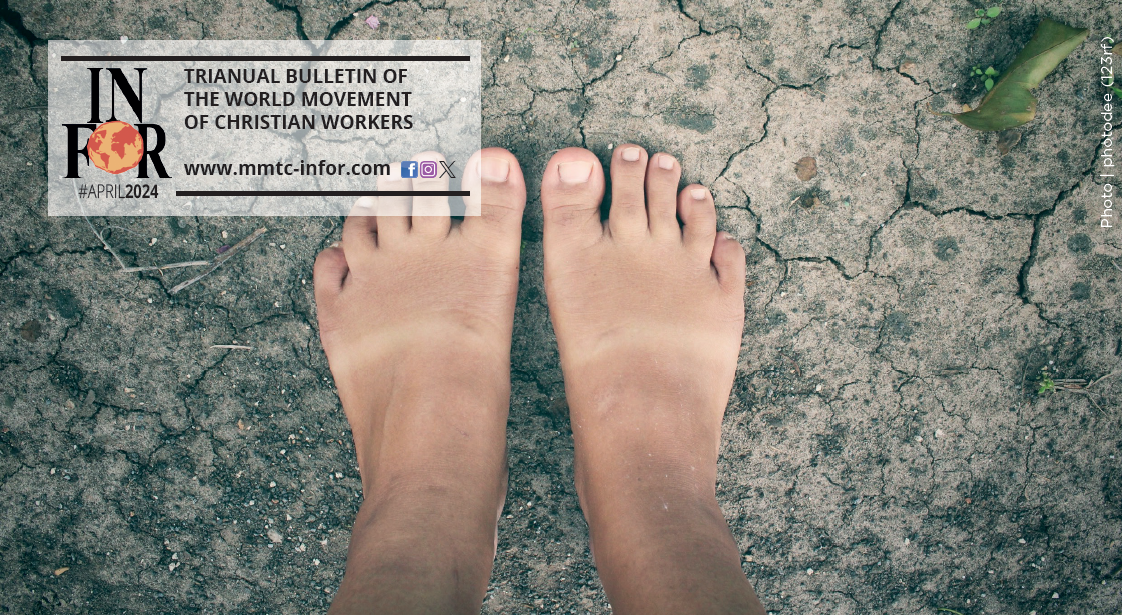
«Thy kingdom comes. On earth as it is in heaven». For the last one decade we have had various topics discussed at all levels of WMCW. The issues which affect the living and working conditions of workers. They include; use of land and ownership, Basic needs food, clothing and shelter. At international level a cry of decent work was discussed from the declaration of WMCW council of Avila, Spain in 2014. Then followed the highlights of social justice in an economy of life in 2023 Lourdes France. While we regret the source of covid 19 at the same period 2020,2021 and 2022 the level of unemployment has increased. Social protection in many countries particularly in south Are unavailable and general rise of vulnerability mostly affecting women and children. Even the Global Market Economy has not solved the problems of immigration, refugees, and internally displaced persons.




